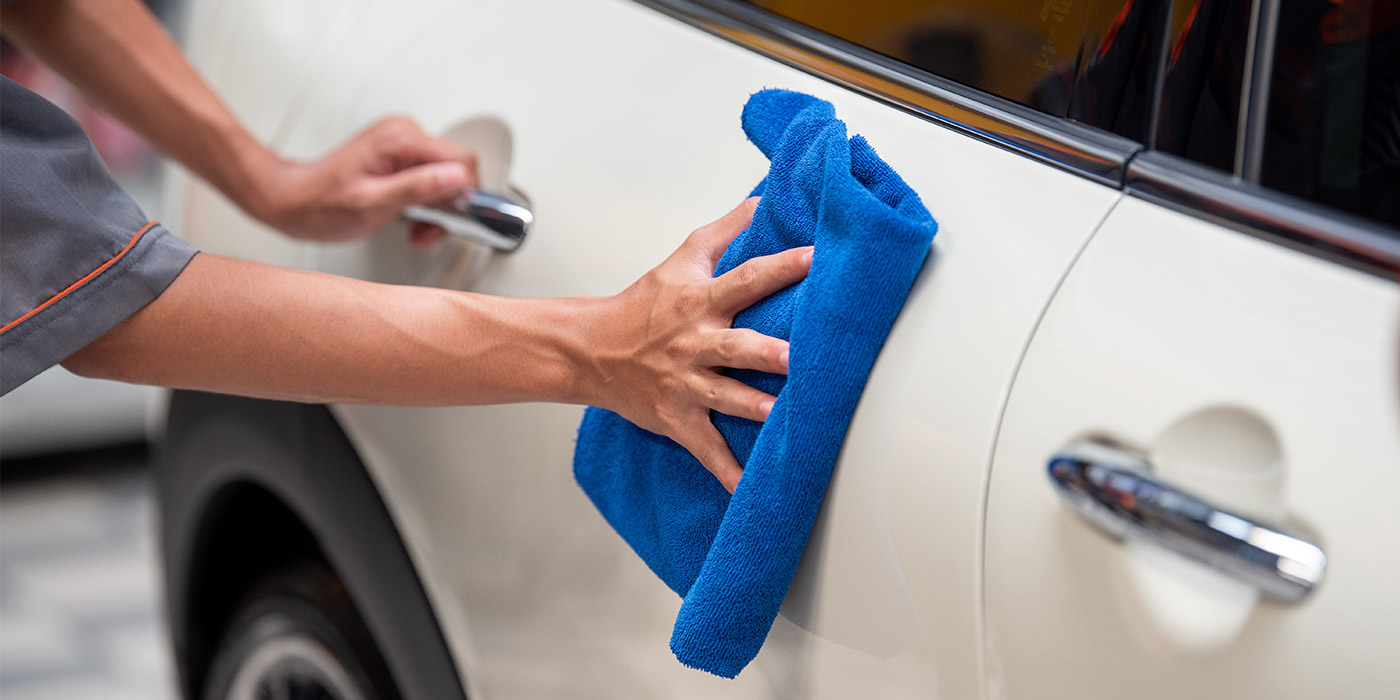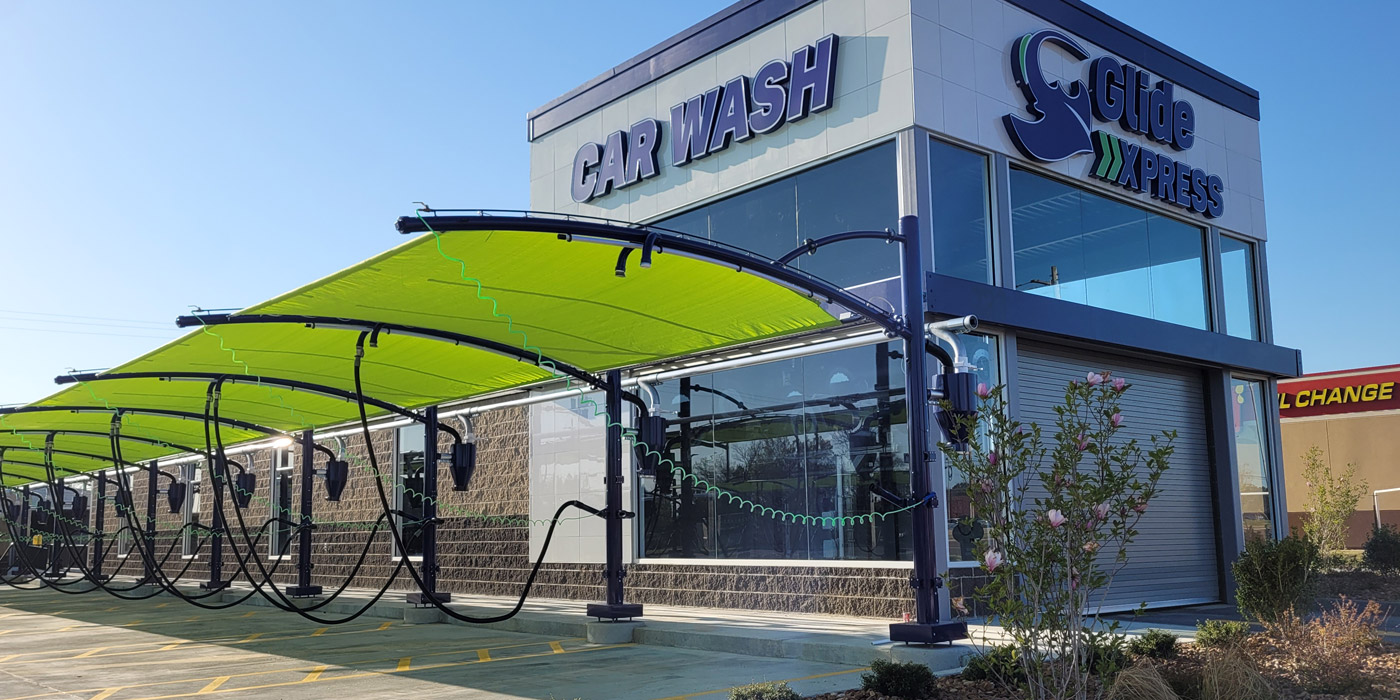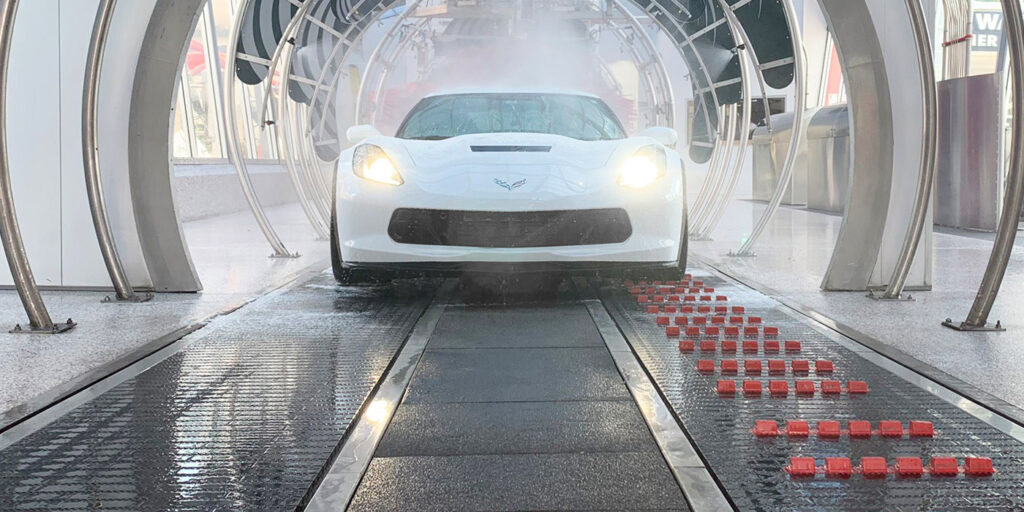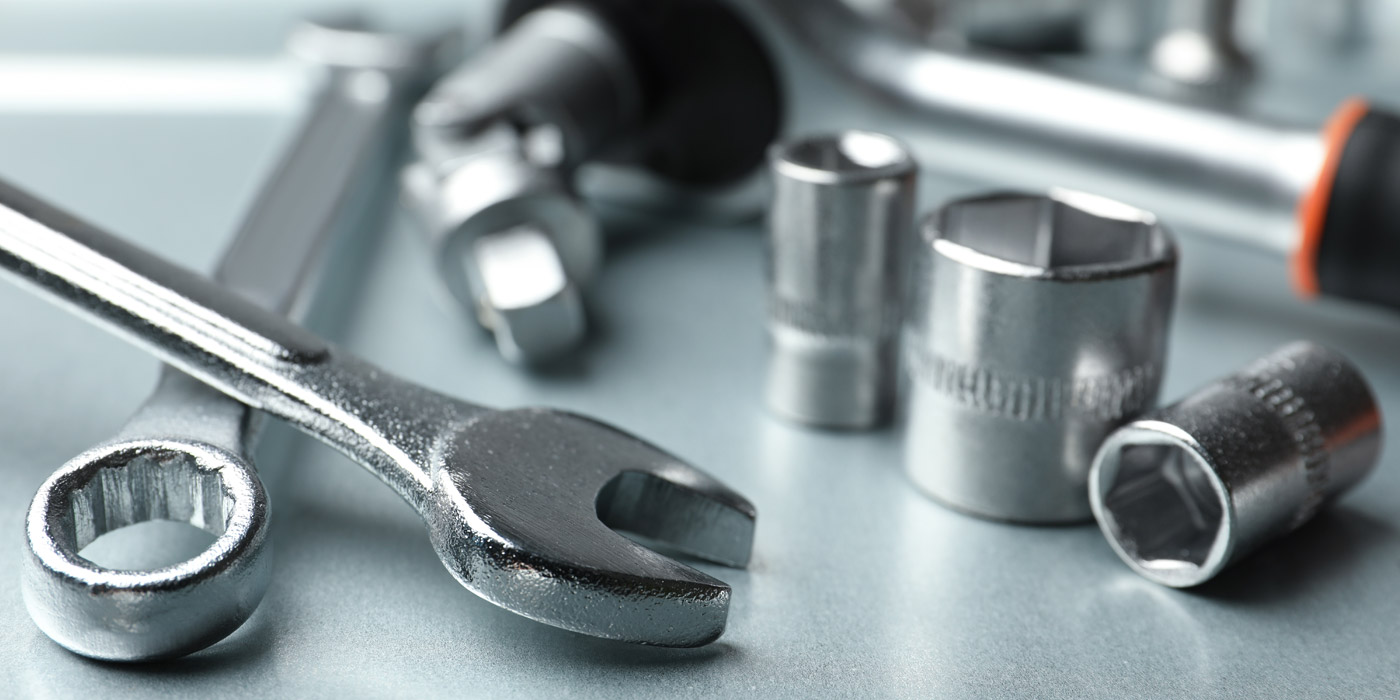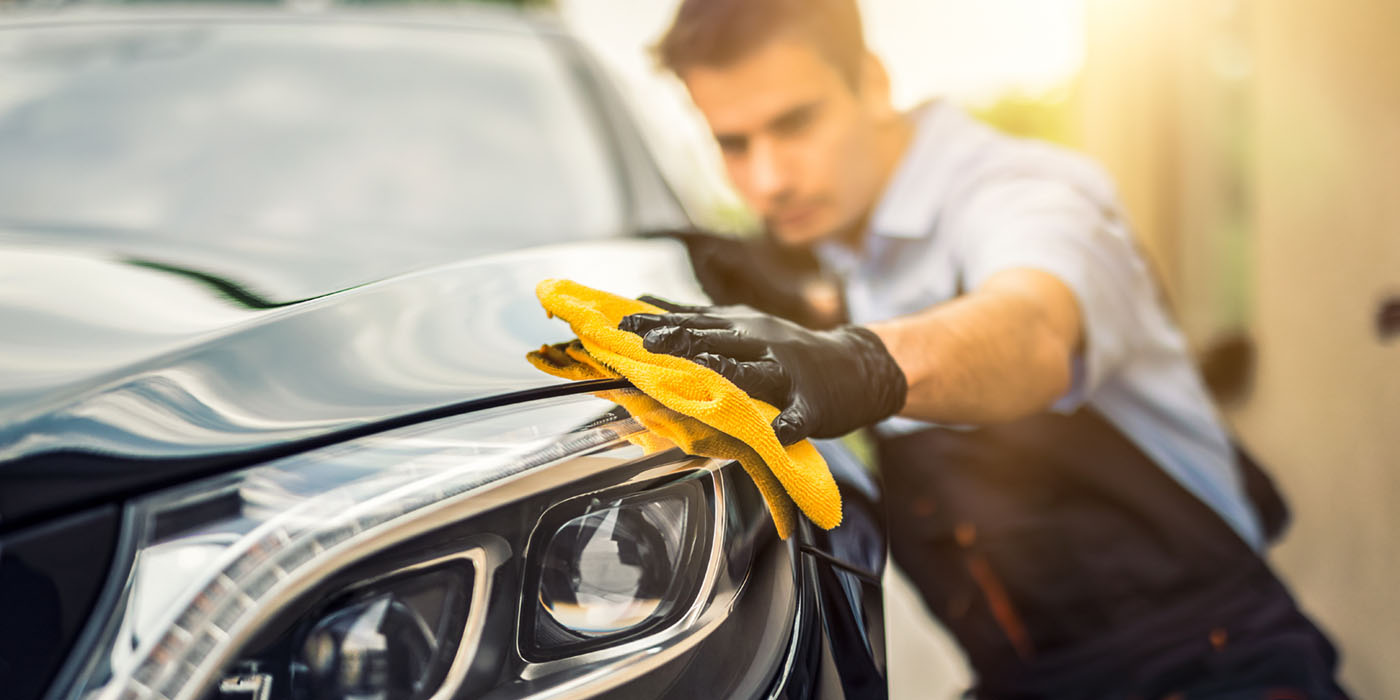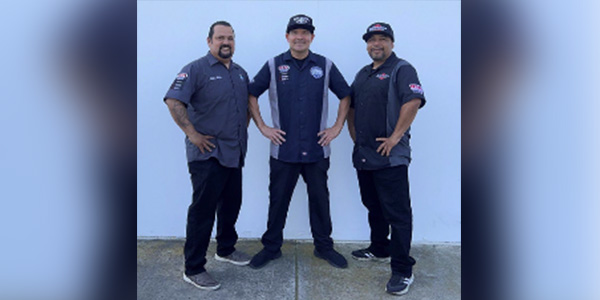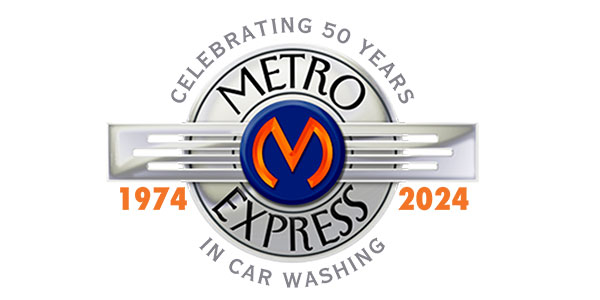Although only two types of doors are dominant in the industry, vinyl and polycarbonate, navigating through the vast assortment of available features and functions can be a daunting task for new and veteran carwash owners and operators alike.
Then again, when an owner/operator knows what to look for, sorting through the often extensive array of options doesn’t have to be so difficult. When considering doors, ample knowledge and a quality manufacturer can help steer any car care business down a profitable, productive path.
Types of doors
An overhead door is most likely the first working piece of equipment customers will encounter when entering a carwash; so owners and operators must select a reliable, attractive door system that is inviting to customers, says William Stokes, senior sales representative of Ultimate Supplies LLC.
However, an attractive door is just one component owners and operators should consider when selecting a door. Stokes notes that only a few door types are designed to withstand the often harsh environment of a carwash.
A carwash’s corrosive setting can damage a door if it isn’t built to withstand water, chemicals and extreme climate conditions, such as ice buildup, reports Jim Johnson, general manager of Airlift Doors Inc.
“In the commercial door industry, there are many options available but only a few that will work for a carwash,” explains Johnson. “Over the years, polycarbonate and aluminum sectional doors have populated the market. However, vinyl rollup doors have [also] established their place in the carwash industry.”
Stokes expands on these two door types, stating that a commonly used polycarbonate door in the industry utilizes “air operators and pneumatic controls to operate and interact with the wash equipment. In addition, high-speed vinyl curtain doors with waterproof electric operators have been gaining a strong foothold in the carwash industry recently.”
Although both can successfully withstand the severe conditions of a carwash, owners and operators must understand the differences associated with these two types of doors to ensure they select the right one.
Selection considerations
Choosing between polycarbonate and vinyl doors will ultimately come down to the particular needs and preferences of a carwash. “Every business and every [carwash have] unique needs that should be considered in the purchase of any equipment, including the overhead doors,” says Stokes.
Stokes offers the following door considerations specific to certain types of car care businesses:
- Lube bays should consider durable door systems that offer alluring visibility and security when closed. Speed and corrosion resistance are less important for lube bays, so a polycarbonate door with galvanized hardware would work better in this application.
- In-bay automatics and tunnels need doors designed for high speed, high volume and protection from chemicals. Industrial or standard commercial doors generally have materials that can deteriorate quickly and cost additional money to maintain and repair.
- Carwashes with multiply cycles per day need a durable door with custom hardware, including high-density polyethylene (HDPE) hinges, high-quality stainless bearings, bearing-less rollers, stainless or aluminum hardware and reliable operation by an air operator or a waterproof electric operator.
In addition to wash type, owners and operators must consider the overall differences of polycarbonate and vinyl doors, such as functions and features, when making a decision.
One such difference is the door’s breakaway ability. “The vinyl rollup door will offer a breakaway feature if the door is impacted and will automatically reset on the next cycle whereas a polycarbonate door would sustain damages if impacted,” asserts Johnson.
Vinyl rollup doors also have a lower R-value (a measurement of thermal efficiency) than polycarbonate doors, notes Johnson, adding that if choosing this style door, carwashes should consider an option with a complete seal on the track, the sides of the door and across the top and bottom to eliminate the potential for air gaps.
Security factor
Security is another important factor to keep in mind. Experts interviewed for this article agree that polycarbonate doors are more secure. “If security [is] an underlying factor in choosing a door, a polycarbonate sectional overhead door [offers] the best protection from unwanted guests,” says Stokes. “A sectional polycarbonate door either will prevent access to the carwash equipment from the exterior by a physical locking mechanism, such as a slide lock, or can be securely closed by the operators that control the opening and closing of the door.”
Owners and operators can also ensure secure operations with a vinyl option, however. Johnson states that some manufacturers offer an option to mount a vinyl door inside a polycarbonate door. “During operational hours, the polycarbonate door can be kept in the open position while the vinyl door operates; and at night, they both can be kept closed for a better security option,” he adds.
This enhanced security is just one example of how certain functions can be implemented to any type of door. As technology continues to evolve, manufacturers are able to apply various features and hardware to any door type. “The door industry is always growing and evolving with new equipment and features. It is always important to do your research and talk to an experienced company to find the options that will work best for your applications,” advises Johnson.
Hardware and maintenance
“Most carwash owners are looking for doors that will last for years, so providing systems that will perform the functions desired and not require replacement or continual upgrade and maintenance is key,” says Stokes.
He continues, “Small details such as how the door operates, how fast [it is], how many cycles a door can perform daily, or yearly, are important. How simple things, such as how the hinges or rollers are made or how the hardware lifts the doors, can also influence a decision on which door to choose.”
When evaluating types of equipment, Stokes notes that carwashes should closely compare hardware within each system to determine which features will work better for their operations.
A door is only as strong as the hardware it is built with, reports Johnson. “Galvanized hardware can corrode and may need to be replaced every few years, but the use of stainless steel or plastic hardware can give you more longevity. [Furthermore], plastic track and plastic hinges are highly recommended for carwashes,” he explains. “Other things to consider for a long-lasting door include e-coat drums, a stainless steel cable, stainless steel bearings and a stainless steel shaft. Aluminum sections can also be anodized to protect from corrosion and make clean up very easy.”
Moreover, the ability to endure in harsh environments, as mentioned earlier, is another crucial function of a carwash’s door system. Winter is coming; and for most carwashes, this snowy season brings substantial profits. However, the colder months of the year can also damage carwash equipment, such as door openers. “Ice buildup can damage a door that operates with an electric jack shaft-style opener,” says Johnson. “As the door opens and hits ice buildup, the cables can come off the door drum halting your operation.”
Winter, as well as wet seasons, can also result in rust buildup. Stokes notes that some manufacturers will offer rust proof options, which can reduce maintenance and other operational costs.
Moreover, adds Stokes, polycarbonate doors can offer some insulation value to carwashes by adding to the efficiency of the heating system during the colder months of the year.
He continues by offering opener considerations, which are important to keep in mind — especially in regards to weather fluctuations many carwashes face throughout the year.
For polycarbonate doors:
- Waterproof, pneumatic air powered openers are commonly used devices to control polycarbonate doors; they are low maintenance and reliable systems that can still function even if there is a power loss at the carwash. Pneumatic openers are usually less expensive to purchase and can have years of continual use.
- New electric openers are now available that can withstand the carwash environment and work on overhead sectional polycarbonate doors with many features and benefits previously unavailable. These electric motors can reliably operate with many functions for high-volume carwashes that pneumatic openers cannot.
For vinyl:
- High-speed vinyl door systems commonly come with waterproof electric openers. High-speed curtain doors can offer faster door operation compared to pneumatic air systems. And, compared to a solid rigid door, the high-speed curtain door has the flexibility of the curtain, which will decrease the chances of damage to doors and vehicles — if a vehicle should impact the door.
“With so many vinyl door systems manufactured for other industries,” explains Stokes, “a carwash owner will need to look at certain details of the doors and motors to make sure he [or she] gets the best quality for his [or her] money.”
Furthermore, Johnson adds that electric and air powered openers can work with any type of door, but a drawbar style is the best option for a polycarbonate door; and for vinyl rollup doors, an electric motor turning the shaft to open and close the door is a popular choice.
Maintenance, hardware and features, such as an opener, significantly impact the efficiency and quality of a door, which in turn affects the overall operations of a carwash. “[Doors] need to be properly designed, installed and maintained to keep the carwash going,” asserts Stokes. “Investing in the best, strongest and most reliable door systems [requires] some research and time.”
He concludes, “Finding the best design [for] door systems and controls is vital to all new and older carwashes in order to stay competitive and profitable throughout the year.”




